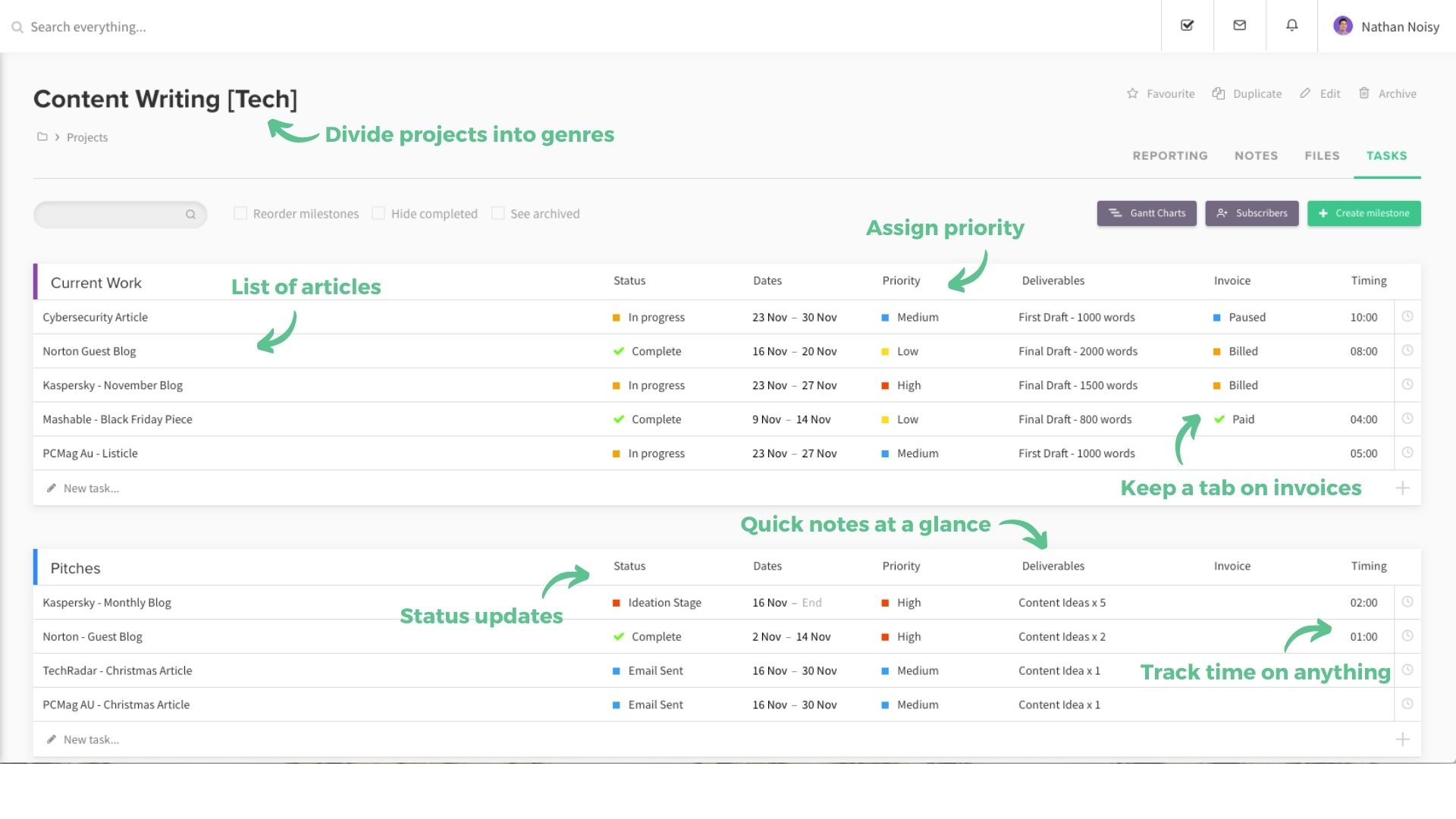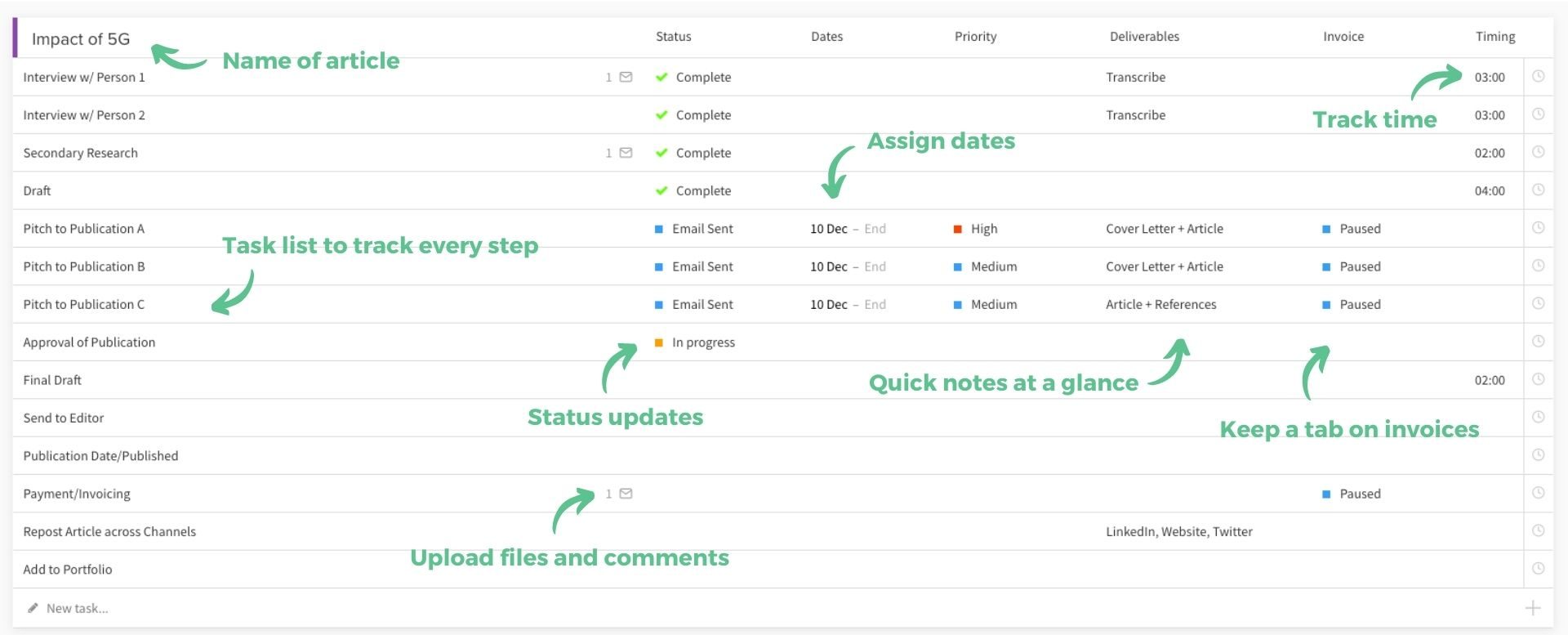Now that the world has discovered what it’s like to work in pajamas, there’s a good chance over 50% of us don’t quite want to go back to formal work attire. If you’re looking to make that shift permanently, especially as a writer — welcome to your personal guide to starting as a freelance writer.
I’m not going to lie and say this is easy. Committing to a job where you’re your own boss requires discipline. Motivation is great but can be fleeting so you have to ensure you prepare yourself for success and jump in, with little room for doubt.
#1 Do your research
What kind of writer are you? What kind of writer do you want to be? If you’re not sure, I’d suggest looking up popular freelance writers till you find one who’s doing what you’d want to do. Most of the popular ones even have their own blogs that break down the process into detailed steps through words or videos. If you’re lucky enough to find a mentor like that, paving a path for yourself is made a lot easier.
Knowing what your strengths and weaknesses are as a writer, helps narrow down your potential audience as well as who you can start pitching too. With guidance from an expert in your field (freelance writers are quite a welcoming community), you also get advice on avoiding blunders that they made when starting out.
For example, General Assembly hosts frequent workshops targeted at freelancers concerning finance, ideas and general guidance. Often, they include a dedicated segment to answer any questions the attendees may have towards the end. I’ve personally attended a few and they’ve been incredibly helpful in the past. (Especially since I struggled with invoicing and understanding how Australia’s taxes worked.)
Once you’ve defined your scope as a writer, it’s also important to understand that you’re going to need further research into topics within your field of interest. Beyond topics of interest, it’s also more about learning which skills are essential within your field. It can help you differentiate yourself and your services if you choose to specialise in certain areas. For example, skilling up in the field of SEO could prove beneficial, especially since it is a skill that translates well across any genre of writing. However, don’t pick a skill merely because it looks like everyone else is doing it — pick one that you know you’ll be happy to invest your time and energy in, that’ll help better your overall writing goals.
#2 Develop your skill set
As mentioned earlier, one of the things I like to do is invest some of my time into workshops that will help make the freelancing path easier. As a writer, there’s no real definition to describe what exactly a freelance writer actually ‘writes’. It could be anything from social media posts, a blog, ghostwriting an article or entire ebook — if there’s writing involved, you can probably pitch for it.
We’ve compiled a list of free workshops and courses below that would be useful for a variety of skills, based on your interests/scope:
Get yourself a Google guide to Writing
We know everyone is sick and tired of the Google spiel but if you can’t beat ‘em, join ‘em. Plus, as a copywriter, understanding the biggest platform your content is going to be featured on is a must. I’d suggest hopping on to Google’s Digital Garage and doing a crash course on all things marketing — the Fundamentals of Digital Marketing course they offer, also comes with a certificate. It covers a range of Google’s tools briefly and if you’re keen on developing more of your skills when it comes to Google’s suite of products, check out Google’s SkillShop for free, detailed breakdowns of each facet of their product. (Hot tip: If you’re looking to score work with a digital agency, having all your Google certifications really takes your CV to the next level, especially if they’re a Google Partner agency.)
Uncover a landmine of content via HubSpot
It’ll also help you wrap your head around Search and SEO — which is a whole other skill set to look at. While SEO is the current big thing, don’t stress out about not understanding it. There are several courses online that break it down quickly for you just so you have the general knowledge required to navigate your way down the writer’s path. A great content mine to explore for the same is HubSpot. They have detailed courses pertaining to SEO, Content Marketing, Digital Marketing…you name it, they’ve got it. It can all seem a bit overwhelming, which is why I highly recommend having a set scope of what it is you want to specialize in as a writer. Don’t aim to cover every possible skill, you’re only going to spread yourself thin.
Looking at Social Media only?
As a social media copywriter, it’s always best to understand the tools you’ll be working with. While getting a valid certificate from Facebook will cost you a fair chunk, their courses all remain free of cost. Quite a few writers have gone down the social media path and never looked back. In Australia, they can make an upwards of $60k a year — which isn’t the only benefit. Once you build a little bit of a portfolio for yourself, you get to pick and choose who you really work with.
Key takeaway i.e. TLDR (Too Long, Didn’t Read)
Honestly, the only note I have here is still — define your scope. Know what it is you’re good at, work on your strengths and acknowledge that you will have weaknesses. While it is important to skill up and stay on top of technology, don’t let that distract you from what it is that you do best.
Keep writing, it’s the greatest thing you can do for yourself, every single day.
#3 Arm yourself with a writer’s toolkit
This isn’t like a party-trick you pull out every now and then, this has to be something that shows that you’re a real copywriting gun. As a freelance writer, you’re going to need more than a CV, you’re going to need a website that functions as an online portfolio and perhaps, an actual portfolio you can attach to pitches. This is your professional presence.
Before you scroll through in a panic, it’s really easy to get set up. The internet is a wonderful place full of tools that make it an incredibly painless process to make yourself look and feel like a professional. If you’re not the most tech-savvy person, I’ve got you covered with recommendations from the Hassl Developer team (who are very cool and knowledgeable about all things tech) and the Content team (who are also very cool and knowledgeable about all things content).
Website Recommendations
WordPress
WordPress is great for those starting out, especially if you’d want to keep your options open down the track. WordPress themes are purchasable and if you’re really keen on playing around with more themes, you can try Themeforest. As a writer, it also offers you a platform to truly showcase your writing skills and try out any new SEO or content marketing tricks you wish to practice. Having examples on hand of actual work
Squarespace
Squarespace was next on their list of recommendations, especially for those looking to build out a portfolio. Be warned though, it is the least flexible albeit the quickest option on this list if you’re just looking for something visually appealing.
Duda
Duda is apparently quite the ‘lock-in’ that limits your options, but it deserved a bit of a shout-out as it is gaining popularity within the world of website building.
Portfolio Recommendations
Medium
Building out a Medium account for yourself is a good way to gain actual readers who appreciate your content. While Medium may not offer the fanfare that comes with plenty of other sites, it does help you build a base of readers who truly care about the content you write. When writing professionally, having a few bylines to your credit is never a bad thing. People like seeing examples of your writing, especially if they’re published online and offer value to readers.
Social Channels
Depending on your audience and writing style, you can pick out specific channels to repost some of your content. Of course, having a work-dedicated email is vital — and as strange as it may sound in our current day and age, having a business card is handy too.
Keep your LinkedIn updated, it’s probably the first platform you’re going to get vetted on. Even if you really do struggle with social media, having even one will greatly help your online presence. It’ll help you showcase your working style and actual work, keeping you accountable.
Online Tool Recommendations
Tools to help edit
I use Grammarly, once I’m done writing an entire article or document, just to catch the glaring errors. Since the tool is fairly easy to toggle on or off, I like to keep it off while I’m actively writing — the red lines can get a tad bit confronting when they pop up. However, I’m going to be honest, nothing quite does the job like a second self-proofreading session. Take some time out to step away, or come back to your work tomorrow to have a fresh look at it. It just always works wonders.
Tools to keep you on track
I’m not sure what it’s like for other writers but when you work on your own time, it is hard to find that productive balance. I like routines and organised workspaces — it helps me align my mindset to work. If you haven’t already, find a platform that matches your working style. As a university student, I shifted across multiple project tools until I settled on Trello and Airtable. Fast forward to today and Hassl is pretty much all I need to keep a track on projects and in general, writing.
With a handy time tracking tool that keeps an account of how much time each task takes and customisable columns within each project, it makes handling each writing project much easier. Another favourite feature is the ability to upload files as and when I need them — either right under the files folder or the respective task. When you’re doing an interview, being able to locate audio recordings immediately is a blessing. It’s also efficient when you need to track a pitch or a long-form article with plenty of interviews. I’ve put in some examples of what a Hassl template might look like if you’re creating one for yourself:
Also, Hassl’s latest wellness feature is something that really sets itself apart from ‘busy’ project management tools. It encourages you to take a quick break, even if just for 30 seconds to a minute, and just focus on yourself. It’s been incredibly helpful and has actually kick-started my journey into meditation — with a good 30-minute Yoga session every week. Before you roll your eyes, don’t knock it till you try it! A lot of us have had trouble finding that line between work and your personal life, especially with remote working positions.
#4 Find a community of fellow writers
One of the best things you can do as a freelance writer is to find a supportive community or a writer pal. You may not think networking is necessary especially as a freelance writer but it is often your connections who help you land your next gig. It’s also just a good idea to have a network of people you can rely on for honest feedback or advice.
In the long run, that’ll also help you gain multiple perspectives. If you’re unsure of where to start, look up VeryGoodCopy — he does micro-interviews with fellow creative professionals and it’s always nice to see what someone else is reading or their take on a topic.
Communities are also how the industry maintains a standard — when you have transparency, it helps you understand what’s normal and what is definitely crossing the line. I haven’t delved into the networking aspect of freelance work but I am part of a few online communities on Facebook to get a general gist of what the guidelines in the industry are.
#TLDR
*takes a deep breath*
Basically, do your research, figure out who you are as a writer and what you love writing about. Once you do that, let the world know in the way you know best — with words. Preferably on a well-designed website that showcases your current work/relevant work. Hold yourself accountable with a simple project management tool and a support system which could be a small online community or a network you build yourself.
*exhales* And there ya go! We’re probably going to do another deep dive soon into the Writer’s Tool kit bit since it looks like it might be more to explore for the more experienced writers out there who might still be struggling with the tech aspect of things.
Feel free to have a read of some of our other articles, we’ve got a few more aligned towards other careers. Have a look over here!








